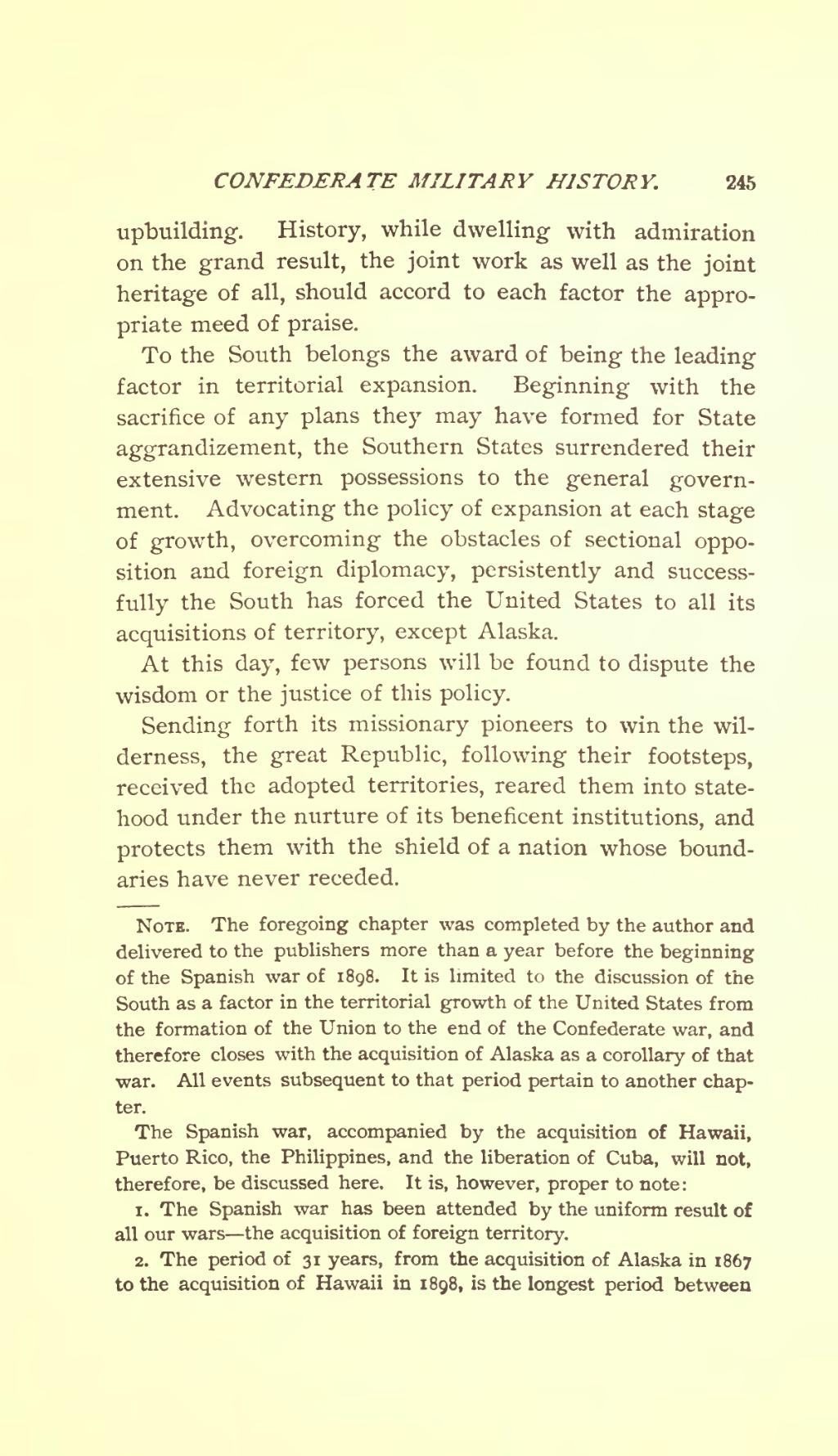upbuilding. History, while dwelling with admiration on the grand result, the joint work as well as the joint heritage of all, should accord to each factor the appropriate meed of praise.
To the South belongs the award of being the leading factor in territorial expansion. Beginning with the sacrifice of any plans they may have formed for State aggrandizement, the Southern States surrendered their extensive western possessions to the general government. Advocating the policy of expansion at each stage of growth, overcoming the obstacles of sectional opposition and foreign diplomacy, persistently and success fully the South has forced the United States to all its acquisitions of territory, except Alaska.
At this day, few persons will be found to dispute the wisdom or the justice of this policy.
Sending forth its missionary pioneers to win the wilderness, the great Republic, following their footsteps, received the adopted territories, reared them into state hood under the nurture of its beneficent institutions, and protects them with the shield of a nation whose boundaries have never receded.
——
Note. The foregoing chapter was completed by the author and delivered to the publishers more than a year before the beginning of the Spanish war of 1898. It is limited to the discussion of the South as a factor in the territorial growth of the United States from the formation of the Union to the end of the Confederate war, and therefore closes with the acquisition of Alaska as a corollary of that war. All events subsequent to that period pertain to another chapter.
The Spanish war, accompanied by the acquisition of Hawaii, Puerto Rico, the Philippines, and the liberation of Cuba, will not, therefore, be discussed here. It is, however, proper to note:
1. The Spanish war has been attended by the uniform result of all our wars the acquisition of foreign territory.
2. The period of 31 years, from the acquisition of Alaska to the acquisition of Hawaii in 1898, is the longest period between
